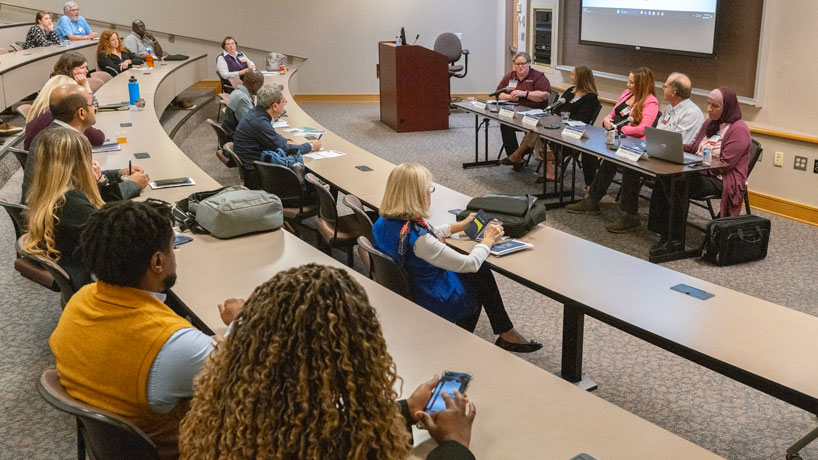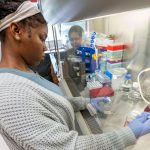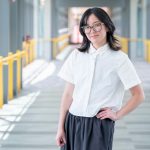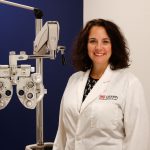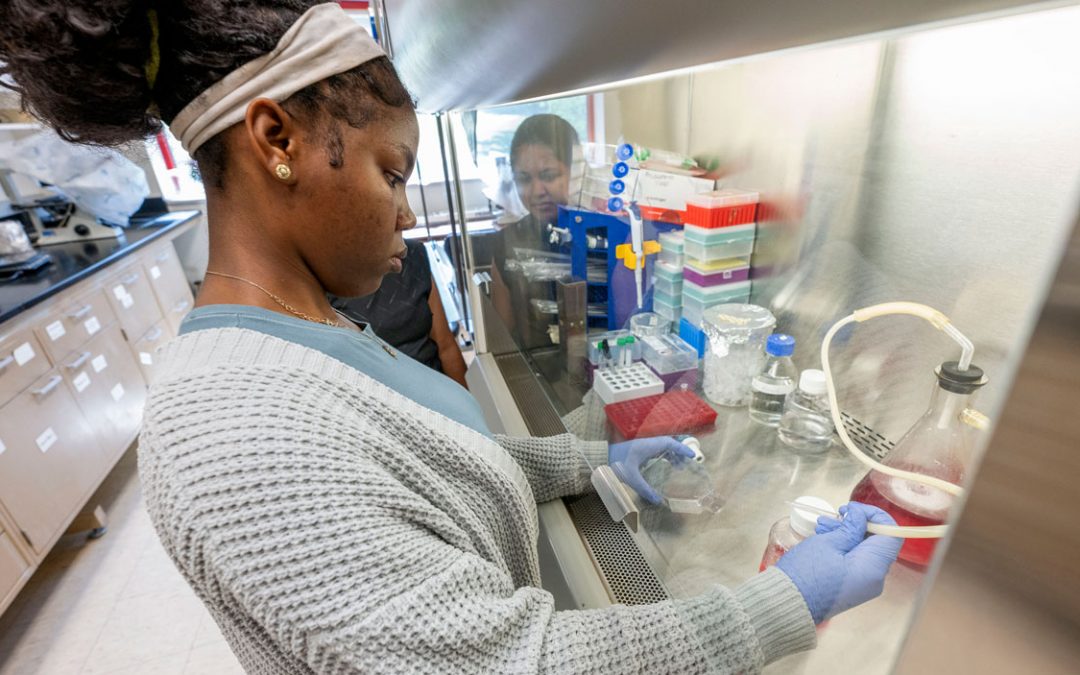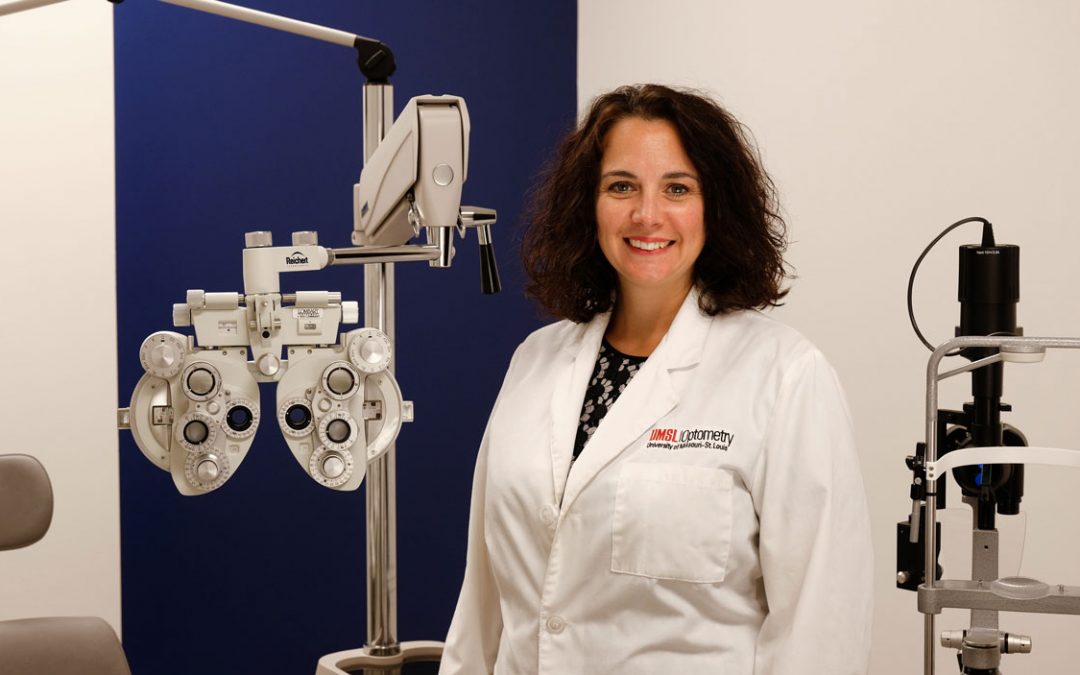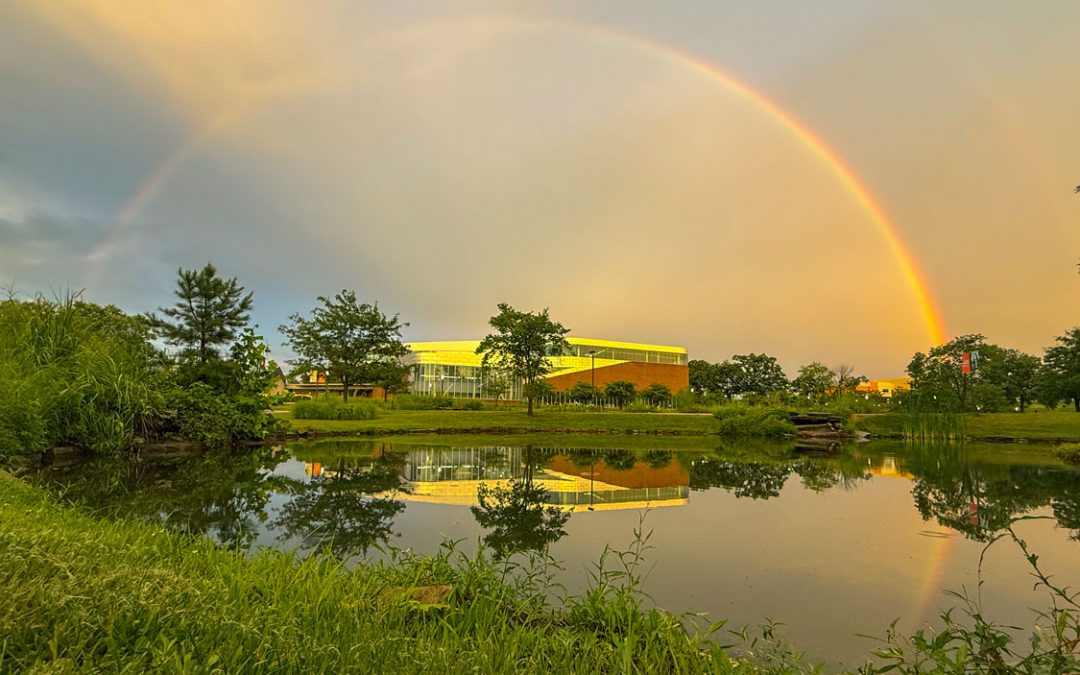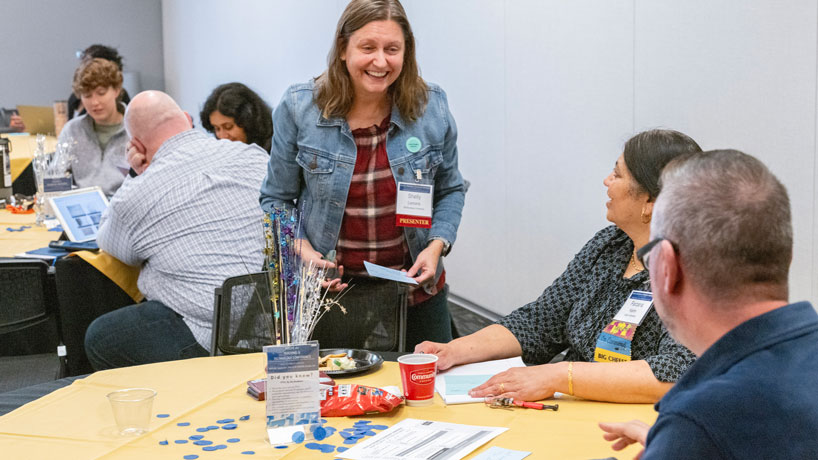
McKendree University Professor of History and Chair of the Division of Social Sciences Shelly Lemons interacts with educators during her presentation, “Certifiably Curious,” during the 2023 Focus on Teaching and Technology Conference last Friday. Held on the University of Missouri–St. Louis campus for the first time since the COVID-19 pandemic, the conference featured a variety of workshops, exhibits, speakers, technology, vendors and innovative idea-sharing. (Photos by Derik Holtmann)
The past few years have been rife with challenges for educators, from the immediate switch to remote learning in the wake of the COVID-19 pandemic to a social justice awakening to the advent of ChatGPT and generative AI. It’s perhaps more important than ever that educators move forward with a sense of control and purpose – and Bridget Arend offers several ways to make that happen.
For her keynote address during the 22nd annual Focus on Teaching and Technology Conference hosted by the University of Missouri–St. Louis’ Center for Teaching and Learning, Arend shared five strategies to help educators find purpose and joy in their work. As the associate director of teaching and learning at Metropolitan State University of Denver, Arend said she’s on a personal mission to help faculty be more intentional in their teaching, as she believes that leads to more effective teaching.
“The more intentional we are, the more we’re able to actually create situations where students are learning the kinds of things we want them to learn, and I believe that’s really connected to more enjoyment in our teaching,” Arend said. “And I’m constantly wanting to connect those three pieces. The enjoyment isn’t just an afterthought; it’s not really just something that is kind of a nice byproduct. Let’s be honest: we’ve had a lot of things in higher ed in recent years that maybe don’t bring us a lot of joy, that have been really tough for us. So what I am hoping to do in my current work is focus on that intentionality that I believe leads to the effective and then enjoyable teaching practice.”
Arend kicked off the hour-long keynote address by pausing for a minute to ask participants to reflect back on their dreams for students. One educator shared that they want students to leave their course with a toolkit of resources they can use immediately, while another hopes to empower students to explore the areas they are frightened of in their own lives.
Arend then shared five strategies to help educators tap back into intentionality, including designing for long-term learning by tapping back into parts of courses that make educators feel really excited, incorporating values and care, addressing pedagogical challenges, proactively identifying limitations and developing reflective practitioner habits.
“My hope is that the more intentional that we can be in our teaching, the more effective we are, and we certainly have a lot more fun when things are going well and when students are learning or at least some students are really making those big leaps that we want,” Arend said. “My hope for you would be that if you can incorporate some of these practices, it will help you find and reconnect with more of that enjoyment in your practice.”
Jennifer McKanry, co-chair of the conference and assistant director of the Center for Teaching and Learning, said Arend’s keynote was a great way to remind educators of their passion for teaching.
“Given three years of pandemic and where everybody is right now coming out of that, we really wanted the overarching message this year to be about rejuvenating our passion for teaching and reconnecting with what it was that really made us love this field,” McKanry said. “We really wanted to find someone who was able to deliver that message of a positive reinvigoration of our passion for teaching, and Dr. Arend’s work is along that line.”
Educators from across the region listen to the Award-Winning Teacher Panel featuring Sara Frank of McKendree University, Shannon Kispert of Webster University, Dave Westenberg of Missouri University of Science & Technology and Ranya Taqieddin of St. Charles Community College.
The keynote address was just one offering of the annual conference, which featured a new hybrid format this year. In addition to the fully virtual day on Sept. 29, a fully in-person day was held on the UMSL campus on Oct. 6, marking the first time the conference has convened in person since before the COVID-19 pandemic.
“Each year at the conference I’m amazed and dazzled by the remarkable community of sharing that happens here,” Keeta Holmes, co-chair of the conference and director of the Center for Teaching and Learning, said when introducing Arend. “Together we collectively lift up our communities and make such a difference in the lives around us. Our conference program features a variety of sessions that promote innovation, wellbeing, reflection and storytelling.”
In addition to 34 online sessions, the virtual program also recognized the winners of the 2023 I.D.E.A. Awards, which honor those who foster inclusion, diversity and equity in online blended and face-to-face teaching settings through innovative course design and delivery. Jessica DeSpain, a professor of English at Southern Illinois University Edwardsville, received the Focus on Instruction Award, and Jason Vasser-Elong, an assistant teaching professor of English and African American studies in the Pierre Laclede Honors College at UMSL, received the Focus on Instructional Design Award.
The in-person conference, which brought nearly 400 attendees to campus this year, also had a new home in the Millennium Student Center. The day featured 27 sessions covering hot-button topics such as ChatGPT and artificial intelligence as well as alternatives to formulaic discussion boards and cognitive reframing in narrative writing.
In particular, McKanry credited John Bryant, Lester Stewart and Rachel Thompson with Event Services, as well as Cheri Hicks and Sheila Stiles with Sodexo Catering, with making the first in-person conference held in years run so smoothly. Early feedback from attendees has been positive, with the hybrid format making the conference accessible to a wide audience of educators.
“The goal is really to reach faculty and any other staff who are working in support of curriculum development to give them an opportunity to step back and reflect and maybe gain some new ideas on teaching,” McKanry said. “I know a lot of faculty spend most of their professional development dollars on their discipline-specific conferences, and particularly for our part-time or adjunct faculty, they often do not have an opportunity to attend professional conferences or a budget to. We had so much love for being back in person, but we’ve also had feedback from people who wouldn’t be able to attend if it weren’t online because of travel restrictions, budget and other things. We’re hoping that the new format met everyone’s needs.”

